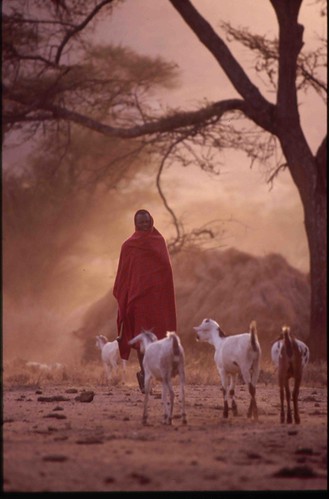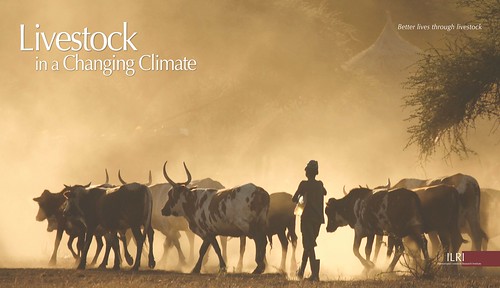Cattle in Botswana. The country has successfully marketed its beef to high-value livestock markets (photo credit: ILRI/Saskia Hendrickx).
At a recently concluded three-day (26-28 Jun) Africa Livestock Conference and Exhibition (ALiCE2013), held in Nairobi, Kenya, livestock researchers Hikuepi Katjiuongua, from Namibia, and Amos Omore, from Kenya, spoke of opportunities to link African smallholder farmers to high-value livestock markets.
Globally, rising populations, urbanization and higher incomes are driving increasing demand for animal products. In Africa, this demand is especially high for milk, meat and eggs. Despite the opportunity this offers for Africa’s many livestock producers, the continent imports most of its animal-source foods because its livestock production is not keeping up with the growth in consumption of these foods.
At the ALiCE2013 meeting, Katjiuongua, an economist with the Nairobi-based International Livestock Research Institute (ILRI), presented the ‘beef story’ from Botswana and Namibia, two African countries that have successfully marketed their beef in the European Union (EU).
‘The experiences from these countries show what works in efforts to access high-value livestock markets, particularly in the EU,’ says Katjiuongua.
The authors suggest the following in ensuring improved access to these and similar markets:
- Smart branding and marketing that shifts from selling a commodity to selling attributes that meet specific end-market requirements
- Setting up credible cattle tracing systems that comply with international standards
- Working with policymakers and the private sector to put in place trade policies that enable live animal trade
Katjiuongua also spoke about successes from dairying in East Africa, where removal of trade tariffs in the East African Community is one of the measures that helped double milk trade between 1995 and 2005.
‘Dairy producers in this region have benefitted from improved economies of scale, better access to services and technologies and an enabling policy and institutional environment,’ the authors said.
The researchers, however, caution that to take up opportunities in high-value markets, smallholders will need help in addressing such challenges as the rising costs of livestock feed, veterinary services and other inputs, the prohibitive costs of complying with end-market requirements and high transport costs.
As a way forward, Katjiuongua and Omore recommend lowering non-tariff barriers, improving smallholder productivity and competitiveness and investing in livestock data collection.
View the presentation.
Post by Evelyn Katingi and Paul Karaimu



